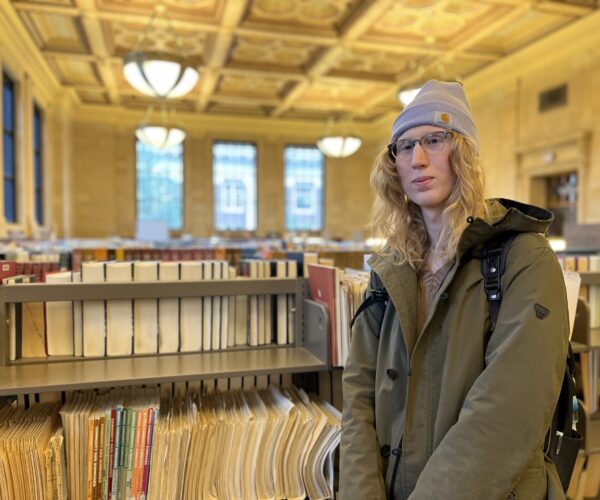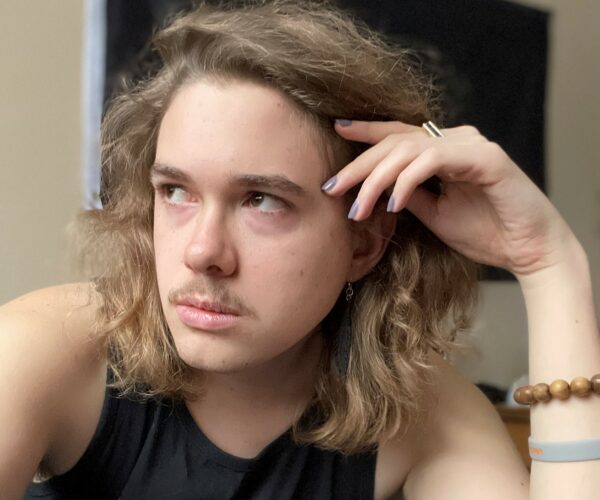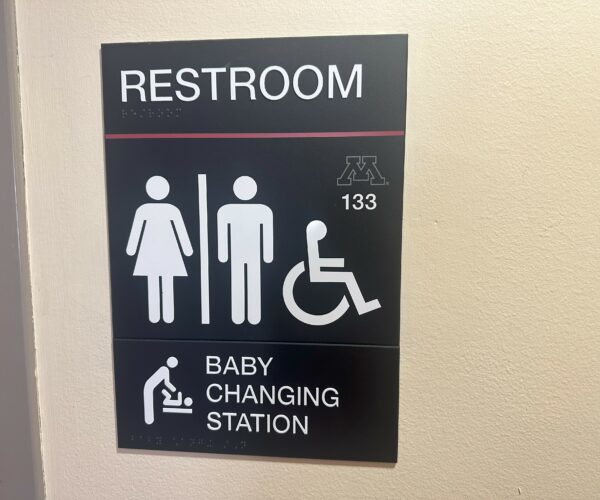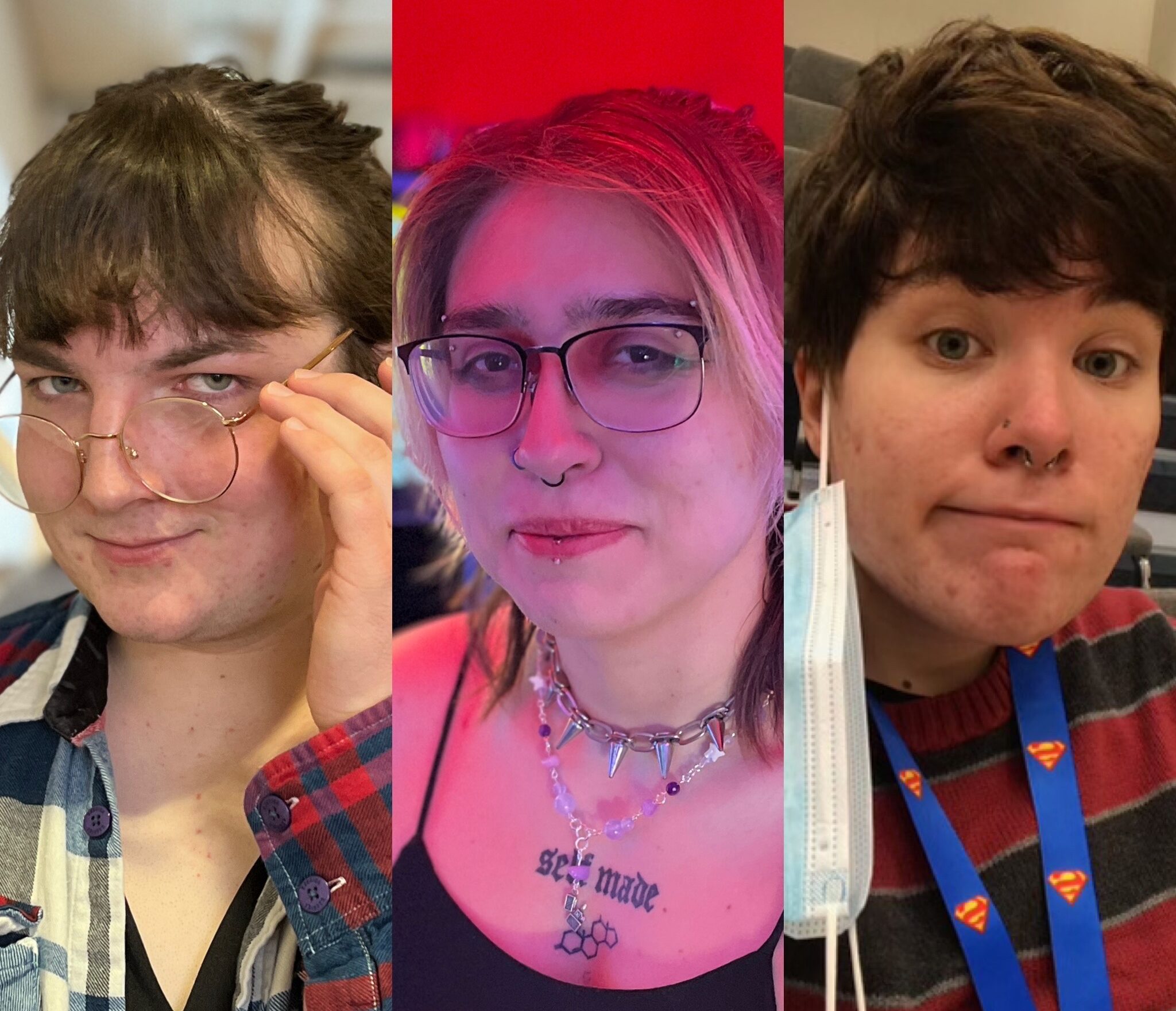For some trans students at the University of Minnesota, the transition to college provided a safe space to explore their identities.
By Noor Adwan
When Lena, a trans woman attending the University of Minnesota, began her gender transition last spring, her instructors and peers weren’t particularly congratulatory. Nor were they outright hostile.
Instead, she was met with polite indifference. Her instructors and peers respected her pronouns and identity, without making a show of things.
“Negative attention would have been brutal. But, also, positive attention would have been uncomfortable,” Lena, who asked to be identified only by her first name for privacy, said. “All I got was indifference, which I think is how it should be.”
An acceptable option
Lena laughed as she recalled the beginning of her gender transition. Over coffee at Coffman Memorial Union, she told me she began experimenting with feminine clothing during the COVID-19 lockdowns before deciding to transition outright. Part of what empowered her to make that decision was watching other queer people at the University exist publicly, she said.
“There’s tons of publicly queer people who are just walking around, which is really comforting,” Lena said. “It lets you know that’s an option. An acceptable option that you can exist as in public.”
Ian Rodriguez, a transmasculine computer science student, said the reactions of his peers and instructors were similarly “chill.” The people he encountered in his academic life didn’t seem to have much trouble gendering him correctly, he said. When instructors did get things wrong — which happened on occasion — they would correct themselves and move on.
“I had a professor — I helped him out with his physics demonstration, and he saw my pronoun pin mid-sentence and just flipped over,” Rodriguez told me in our shared living room in West St. Paul. We’ve been friends since middle school, and over this time, I’ve been able to watch him grow more into his identity with each passing year.
I can’t see it, as he’s wearing a t-shirt, but there’s a tattoo on his chest that says “self made.”
Below it is another tattoo — the chemical makeup of testosterone, the hormone that stimulates the development of male secondary sexual characteristics. Rodriguez, like many transmasculine people, takes hormones to facilitate his gender transition.
College as a safe place to transition
For many young adults, moving away from home to go to college facilitates their transition from childhood to adulthood. It can also provide a safe space for gender exploration, provided their instructors and peers are understanding.
Having a safe space to explore their genders during college was something both Lena and Rodriguez said helped them.
Theo, a transmasculine theater student who asked to be identified only by his first name for privacy, said he found support by living in a designated queer space: Lavender House, a Living Learning Community for queer students in Comstock Hall.
“It’s really cool to live with other members of the queer community,” Theo said.
Theo said the beginning of his gender transition lined up with when he started college.
Rodriguez said his did as well. This was in part due to the new level of freedom he experienced after moving away from home.
“While I was still living at home, there was less space to explore,” Rodriguez said. “Moving out and getting to exist in my own space where people hadn’t previously known me was very helpful and very freeing.”
Lena and Theo also said the transitions inherent in college life facilitated their respective gender transitions. Lena said academic stress led her to pursue therapy, which later contributed to her ability to come out to herself. Theo said living with other queer people in Lavender House gave him a safe space to express his lived experiences to people who understood them firsthand.
Queer joy as resistance
Some of the recent news relating to transgender people has been alarming to them. On Feb. 13, South Dakota became the sixth state to restrict gender-affirming care for minors. Texas senators introduced a bill Feb. 17 that would ban nearly all gender-affirming care in the state — even for adults, if passed.
Against a national backdrop of lawmakers that seek to curtail the existence of transgender people, some transgender people said they treat joy as a type of resistance.
“When forces larger than us try to break our spirit, we can respond as forcefully and effectively with joy as we can with anger, defiance, and protest,” wrote Gillian Brantstetter, a communications strategist at the American Civil Liberties Union and cofounder of the Transgender Journalists Association.
For Rodriguez and Theo, feeling more honest and true to themselves has been a source of joy as they transitioned.
“I feel like I’m existing as myself,” Rodriguez said.
“Being able to be myself away from the social constraints of being like what everyone thought I was has been wonderful,” Theo said. “It’s opened up many doors for me that I didn’t think were ever going to be possible: truer friendships and more honest relationships with other people.”
After Rodriguez wrapped up a monologue about the ways his transition brought him joy (understanding why he felt out-of-place in women’s spaces, entering a loving relationship with another transmasculine person, etc.), he paused for a moment before conveying a final addition:
“I’m also sexier than I’ve ever been,” he said, grinning.




